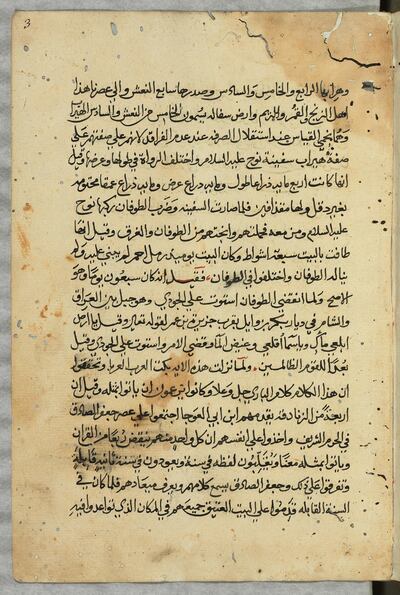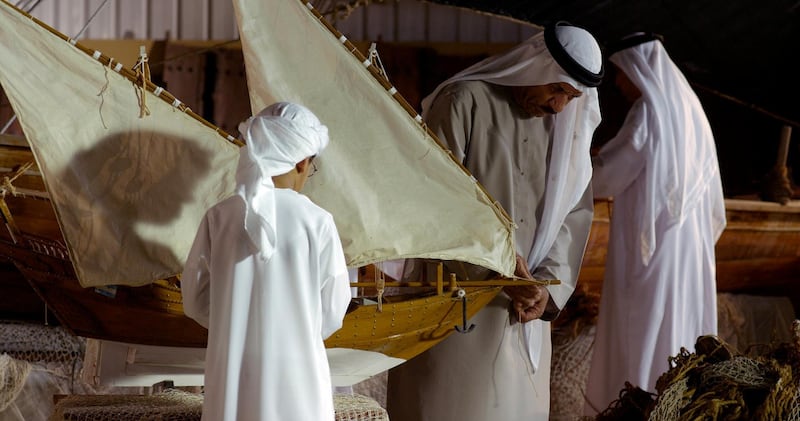‘Lion of the Sea’ was the tantalising description of the subject of this week’s lecture at Louvre Abu Dhabi about the 15th-century seafarer and poet Ibn Majid. Surrounded by water and opposite Mina Port, there seemed no better venue for stirring the navigational impulses of a world too often on land-based auto-pilot.
Dr Hamad Bin Seray, a professor of history and archaeology at United Arab Emirates University, is from Ras Al Khaimah, the birthplace of Ibn Majid, or, to give his subject his full name, Shihab al-Din Ahmad ibn Majid al-Dîn Ahmad. Yet when Ibn Majid was born in around 1432, RAK was known as Julfar, then one of the most important ports in the region. Ibn Majid was from a wealthy family of seafarers and ship owners, who made their money trading goods between the Arabian Peninsula and Asia. According to Dr Seray, the family owned the ships and charged others for their navigational services.

He was a voracious learner who benefited from skills passed down from his father and grandfather, and from the stories he heard from other returning and retired seafarers on the Julfar docks, picking up four or five languages at the same time. Dr Seray argues that Ibn Majid put into action both theory and practice with a formidable combination of ambition, religious faith, mathematical mastery and invention and an encyclopedic knowledge of geography and astronomy to become one of the most important figures of his time and a leading scholar of “seafaring sciences”. He was also a product of his time, when technology was ever-changing and because of the importance of sea trade, “Julfar was a massive city with international connections. It was closely related to the whole world.”
I've long been meaning to visit the small museum dedicated to Ibn Majid in RAK, and conduct some more research on him, as it beggars belief that such an individual could have so little (pardon the pun) bearing certainly on most visitors' impressions of the UAE. Hopefully this is about to change with interest from institutions such as the Louvre, which currently has a copy of Ibn Majid's most important work Navigational treatise: Fawâid fi usûl Ilm al-Bahr wa al qawaid (Book of Useful Information on the Principles and Rules of Navigation), written in 1490, on loan from Bibliothèque nationale de France, but still, Dr Seray says, there is much of the Julfar port area that's yet to be excavated or even discovered.
Yet the most inspiring takeaway from any discussion about Ibn Majid and others like him is, Dr Seray argues, their reminder – from even that distant past – of what adventure really means. In a time when “adventure travel” is packaged and sold as any other product but is often in reality anything but, it’s time we all re-learned how to leave the safe harbours of our lives and test ourselves.
When every iPhone has a compass and we have so many more tools available to us, we can benefit from re-awakening the ancient skills that make us human. “Ibn Majid invented the compass in the modern sense, but he didn’t know the outcome of his journeys; he didn’t know if he would return safe and sound or not,” Dr Seray says. “It was a difficult task, but that is why it was an adventure, the real definition of it. He builds his skills, gains confidence and goes from areas he knows to those he doesn’t know. He had the ambition to reach new horizons that were not reached before ... and in doing so he shaped the history of seafaring in the whole region.”
____________
Read more:
[ World Arabic Language Day: the fight to keep Arabic relevant ]
[ My kind of place: The living heritage of Ras Al Khaimah ]
[ On the move: why solo travel is the new luxury ]
____________





